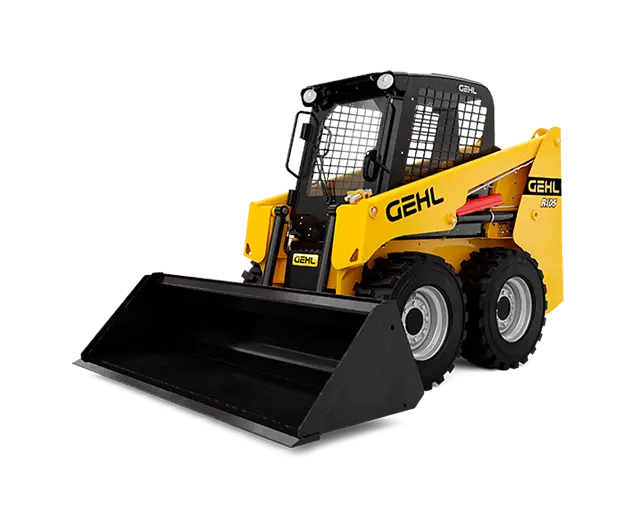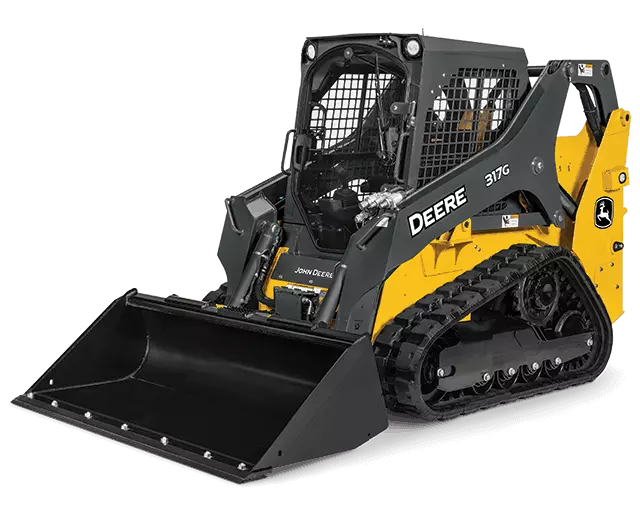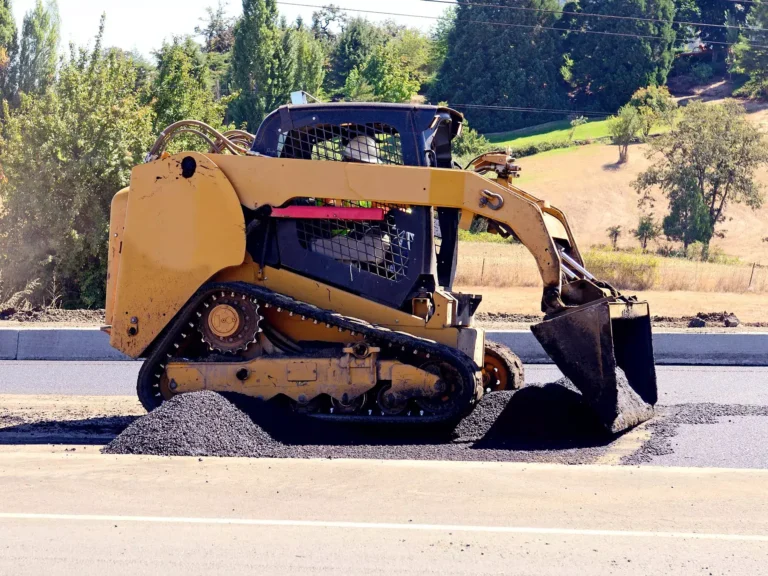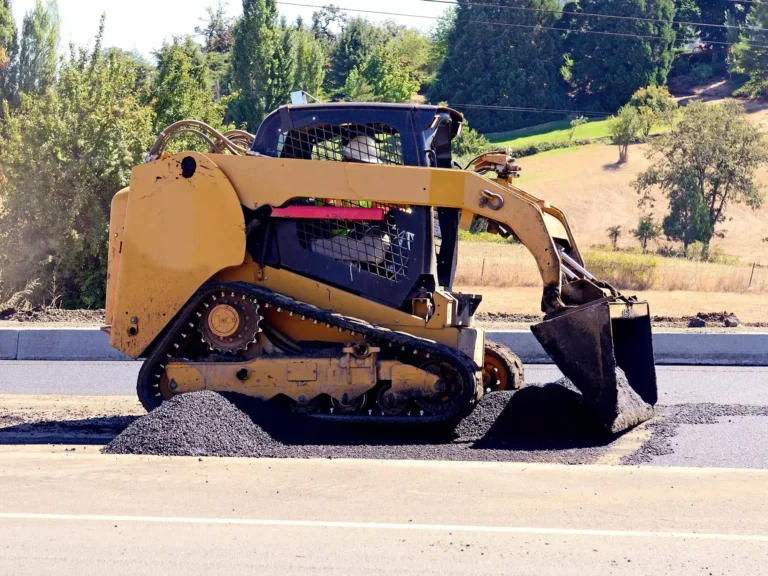How Much to Rent a Skid Loader? Unveil Cost Secrets!
Renting a skid loader typically costs between $200 and $600 per day, depending on location and model. Weekly rates range from $800 to $2,500.
Skid loaders are versatile machines ideal for various construction and landscaping tasks. They can handle heavy lifting, digging, and material transport, making them valuable for both professionals and DIY enthusiasts. Renting a skid loader can be a cost-effective solution for short-term projects.
Understanding rental costs helps you budget effectively and choose the right model for your needs. Factors influencing rental prices include machine size, rental duration, and local market rates. Researching these aspects ensures you get the best value for your money while meeting your project requirements.
The Basics Of Skid Loader Rental
Renting a skid loader can simplify your heavy lifting tasks. Knowing the essentials helps you make informed choices. Understanding what a skid loader is and its common uses is crucial.
What Is A Skid Loader?
A skid loader is a compact, versatile machine. It has a small frame and can maneuver easily in tight spaces. Skid loaders have a unique feature called skid steering. This allows the machine to pivot on its rear wheels.
These machines come with various attachments. Attachments include buckets, forks, and grapples. Each attachment serves different functions, enhancing the machine’s versatility.
Common Uses For Skid Loaders
Skid loaders are widely used in various industries. Here are some common applications:
- Construction: Skid loaders move materials like dirt and gravel.
- Landscaping: They assist in grading and leveling land.
- Agriculture: Farmers use them for moving feed and equipment.
- Snow Removal: They clear snow from driveways and parking lots.
- Demolition: Skid loaders help remove debris from job sites.
Each application benefits from the skid loader’s agility. Their compact size allows access to hard-to-reach areas. This makes them indispensable for many projects.
Factors Influencing Rental Costs
Understanding rental costs for a skid loader is essential. Several factors affect how much you will pay. Here are the primary factors to consider.
Size And Capacity
The size of the skid loader impacts rental costs. Larger machines typically cost more. They can handle bigger jobs but come with a higher price tag.
- Small skid loaders: Great for tight spaces. Lower rental fees.
- Medium skid loaders: Versatile for various tasks. Moderate rental fees.
- Large skid loaders: Suitable for heavy-duty work. Higher rental fees.
Rental Duration
The length of the rental period also affects costs. Short-term rentals can be more expensive per day. Long-term rentals often come with discounts.
| Rental Period | Average Daily Rate |
|---|---|
| 1 Day | $200 – $400 |
| 1 Week | $800 – $2,000 |
| 1 Month | $2,500 – $6,000 |
Location And Availability
Your location plays a significant role in rental costs. Urban areas may have higher prices due to demand. Remote areas might have fewer options, which can also raise costs.
- Urban locations: Higher demand leads to higher prices.
- Rural locations: Limited availability may increase costs.
- Local competition: More rental companies can lower prices.
Average Rental Prices
Understanding average rental prices for skid loaders helps in budgeting. Prices vary based on rental duration and location. Knowing these costs can save money and time.
Daily Rates
The daily rental rate for a skid loader typically ranges from $200 to $500. Factors influencing daily rates include:
- Loader size and capacity
- Rental company policies
- Seasonal demand
Here’s a breakdown of average daily rates:
| Loader Size | Average Daily Rate |
|---|---|
| Small (up to 1 ton) | $200 – $300 |
| Medium (1 to 2 tons) | $300 – $400 |
| Large (over 2 tons) | $400 – $500 |
Weekly And Monthly Options
Weekly and monthly rentals provide more savings. Rental companies often offer discounts for longer durations.
- Weekly Rentals: Expect to pay between $800 and $1,800.
- Monthly Rentals: Rates can range from $2,500 to $5,000.
Consider the following benefits:
- Lower average daily cost
- Reduced paperwork and hassle
- Flexibility for extended projects
Always check with local rental agencies for specific rates and discounts.

Credit: www.macallisterrentals.com
Comparing Rental Companies
Choosing the right rental company for a skid loader is vital. The right choice affects your budget and project success. Two main types of providers exist: local and national. Each has unique benefits and drawbacks. Understanding these can help you make an informed decision.
Local Vs. National Providers
Local and national rental companies offer different experiences. Consider these factors:
- Price: Local providers may have lower rates.
- Availability: National chains often have more equipment options.
- Service: Local companies may provide personalized service.
- Delivery: Local firms often offer faster delivery times.
Here’s a quick comparison:
| Factor | Local Providers | National Providers |
|---|---|---|
| Pricing | Lower rates | Competitive pricing |
| Equipment Variety | Limited options | Wide selection |
| Customer Service | Personalized | Standardized |
| Delivery Speed | Fast | Variable |
Evaluating Customer Service
Customer service plays a crucial role in your rental experience. Here are some tips to assess it:
- Response Time: How quickly does the company answer inquiries?
- Staff Knowledge: Are employees knowledgeable about equipment?
- Support Availability: Is support available after hours?
- Reviews: Check online reviews for customer feedback.
Good customer service can save you time and stress. Choose a provider that prioritizes your needs.
Additional Costs To Consider
Renting a skid loader involves more than just the rental fee. Several extra costs can quickly add up. Understanding these costs helps you budget effectively.
Delivery And Pickup Fees
Most rental companies charge for delivering and picking up the skid loader. This fee can vary based on distance and company policies. Here’s a general idea of what you might expect:
| Distance | Estimated Fee |
|---|---|
| Within 10 miles | $50 – $100 |
| 10 to 30 miles | $100 – $200 |
| 30 to 50 miles | $200 – $300 |
Ask the rental company for specific rates. Confirm if the fee is included in the rental price.
Insurance And Damage Waivers
Insurance protects you from unexpected costs. A skid loader can be expensive to repair. Rental companies often offer insurance options.
- Basic Coverage: Covers damages up to a certain amount.
- Full Coverage: Covers all damages, often at a higher cost.
- Damage Waiver: Waives certain fees if the equipment is damaged.
Typical costs for insurance options might look like this:
| Type of Insurance | Estimated Cost |
|---|---|
| Basic Coverage | $10 – $30 per day |
| Full Coverage | $30 – $60 per day |
| Damage Waiver | $15 – $50 per day |
Always read the terms carefully. Understand what is covered and what isn’t.

Credit: www.bigrentz.com
Money-saving Tips For Renters
Renting a skid loader can be expensive. Use these money-saving tips to cut costs. Smart planning helps you save money and get the best deal.
Off-season Discounts
Renting during the off-season can lead to big savings. Many rental companies offer discounts during slower months. Here are some tips:
- Research peak rental seasons in your area.
- Contact rental companies during off-peak times.
- Ask about special promotions or deals.
Some companies may provide up to 30% off during off-peak seasons. Always compare prices from different providers.
Long-term Rental Strategies
Consider a long-term rental for more savings. Many companies offer lower rates for extended rentals. Here are the benefits:
- Lower daily rates.
- Flexibility in usage time.
- Less hassle with frequent rentals.
Check the following strategies:
- Negotiate a better rate for longer periods.
- Look for package deals that include attachments.
- Evaluate your project needs before committing.
Long-term rentals can save you money and time.
Understanding Rental Agreements
Understanding rental agreements is crucial for renting a skid loader. These agreements outline your responsibilities and the rental company’s rules. Knowing the terms helps avoid surprises and ensures a smooth rental experience.
Deposit Requirements
Most rental companies require a deposit. This deposit protects them against damages and ensures you return the equipment. Here are key points about deposit requirements:
- Amount: Typically ranges from $100 to $1,000.
- Refund: Most deposits are refundable if equipment is returned undamaged.
- Payment Method: Credit cards are commonly used for deposits.
Check specific deposit policies before signing any rental agreement.
Terms And Conditions
Terms and conditions vary by rental company. They outline usage rules and fees. Here are some common points:
| Term | Description |
|---|---|
| Rental Duration | Defines how long you can rent the skid loader. |
| Late Fees | Charges for returning the equipment late. |
| Maintenance | Responsibilities for keeping the equipment in good condition. |
| Insurance | Requirements for insuring the skid loader during the rental. |
Read all terms carefully. Understanding them ensures a hassle-free rental.

Credit: www.macallisterrentals.com
Preparing For Skid Loader Delivery
Getting ready for your skid loader delivery is essential. Proper preparation ensures a smooth operation and prevents delays. Follow these steps to ensure everything is in order before the machine arrives.
Site Readiness
Check your site before the skid loader arrives. A well-prepared site helps in efficient loading and unloading. Here are some key points to consider:
- Clear the delivery area of obstacles.
- Ensure the ground is level and stable.
- Check for overhead power lines and trees.
- Mark any restricted areas clearly.
Consider the following table for site readiness:
| Site Preparation Task | Status |
|---|---|
| Clear Obstructions | ✔️ Done |
| Level Ground | ✔️ Done |
| Check Power Lines | ✔️ Done |
| Mark Restricted Areas | ✔️ Done |
Safety Briefing And Training
Safety is crucial during skid loader operation. Conduct a safety briefing before the loader arrives. Ensure everyone knows their roles and responsibilities.
- Discuss machine operation basics.
- Review safety gear requirements.
- Explain emergency procedures.
- Conduct hands-on training if possible.
Use this checklist for your safety briefing:
- Review safety equipment needed.
- Explain the operation manual.
- Practice communication signals.
- Confirm all workers understand safety protocols.
Frequently Asked Questions
How Much Does It Cost To Rent A Skid Loader?
Renting a skid loader typically costs between $200 and $600 per day. Prices can vary based on location, rental duration, and loader size. Additional fees may apply for attachments or insurance. Always compare rental companies to find the best deal for your project needs.
What Factors Affect Skid Loader Rental Prices?
Several factors influence skid loader rental prices. These include the rental duration, local demand, and the specific model required. Additionally, seasonal fluctuations can impact availability and pricing. Always consider the loader’s size and required attachments, as these can also affect the final rental cost.
Are There Additional Fees For Skid Loader Rentals?
Yes, additional fees may apply when renting a skid loader. Common extra charges include insurance, delivery, and fuel costs. Some companies may also charge for attachments or late returns. Always review the rental agreement to understand all potential fees before finalizing your rental.
How Long Can I Rent A Skid Loader For?
Most rental companies offer flexible rental durations. You can typically rent a skid loader for a day, week, or month. Longer rental periods often come with discounted rates. Be sure to discuss your project timeline with the rental company to find the best option for your needs.
Conclusion
Renting a skid loader can be cost-effective for your project. Prices vary based on location, duration, and equipment type. Always compare rental rates and terms to find the best deal. Investing time in research ensures you get the right machine at a fair price, helping you complete your tasks efficiently.







